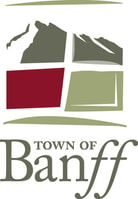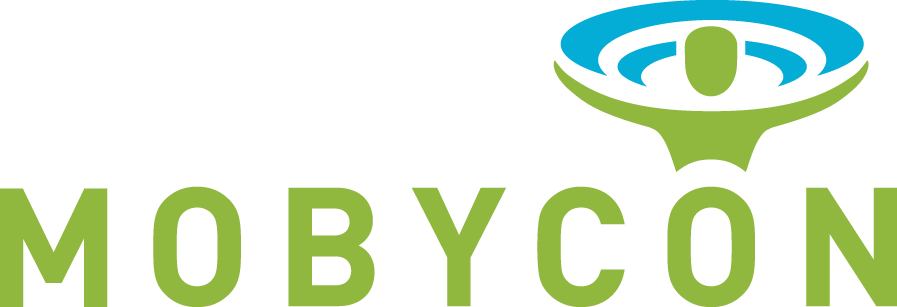- 5:00 PM Welcome Reception
- 8:00 AM Continental Breakfast Provided
Vicery Ballroom Pre-Event Area, First Floor9:00 AM First Keynote: Social, Economic, and Environmental Well-Being in Mountain Towns - The Challenge
Viceroy Ballroom, First Floor
When it comes to mountain towns, there is likely no person that has thought about them more than Jonathan Schechter.
Thanks to their geographic isolation, mountain towns have long been defined by a tradeoff of urban conveniences for outdoor pursuits and tight-knit communities. In recent years, however, technology has rendered geographic barriers increasingly moot. As that’s occurred, mountain towns have struggled to maintain a sense of community. Paradoxically, while traditional economic metrics suggest mountain towns are hitting it out of the park. increasing numbers of residents feel their communities are struggling like never before.
Why is this happening? How did communities once known for pristine environments, lack of pretense, little social differentiation, and an idyllic quality of life become ground zero for just the opposite? These are the themes Jonathan will explore in his talk.
In this session, Jonathan will explore and, critically, ask you a series of fundamental questions. What is a healthy community? A healthy economy? A healthy environment? How do we assess each? And perhaps most critically, how are we doing? Each is a question of critical importance to the future of mountain towns.
SESSION POWERPOINT
10:15 AM Break
10:30 AM Second Keynote: Social, Economic, and Environmental Well-Being in Mountain Towns - The Solution
Mayor John Bauters.
Viceroy Ballroom, First Floor
The San Francisco Bay Area is well-known for its mighty economic wealth…and its struggles in protecting its environment and middle class.
Enter Emeryville. This city of 13,000 has shrugged off the seeming intractability of issues like affordable housing, social justice, climate change, and environmental stewardship. Emeryville is home to Pixar, Clif Bar, IKEA, and a burgeoning life sciences research core, making it an economic powerhouse in its own right. However, under Mayor John Bauters and the Emeryville City Council, the city has become a leader in social and environmental success for the Bay Area and beyond. “Success” in Emeryville goes beyond sustainability to full-on regeneration. The city is a thriving, equitable square mile reinvented from its former identity as a polluted industrial town, to a community with an estuary that serves as home to numerous endangered species and may soon host sea otters in the San Francisco Bay for the first time since urbanization. The city is at the vanguard of climate change solutions, and punches far above its weight-class by outperforming larger cities in the production of affordable housing. Its commitment to social justice is manifest throughout its built environment, whether it be bike lanes, bus benches, or city-run crèches. Emeryville boasts the nation’s highest minimum wage and is one of only a handful of US cities with worker protections that help families thrive.
How did Emeryville achieve its social, economic, and environmental successes? By understanding - and acting - as if city and community are one and the same. As a lawyer and social justice advocate, Mayor Bauters has leveraged the mayor’s office to enhance all aspects of the community. Learn how cities (especially the small ones) can lead the world when it comes to economic, social, and economic success.Noon: Networking Lunch (provided by Future West)1:30 Transit Tour Group #1
Brush Creek Rd + Wood Rd Downhill Bus Stop
Participants will have the opportunity to learn from local transportation experts about the dense, multi-modal transportation network in the Roaring Fork Valley. Participants will visit the Rubey Park Transit Center in downtown Aspen and the Brush Creek Transit Center down valley. Presenters will discuss how the local transit system works, and how it contributes to a successful Traffic Demand Management system that has kept traffic volumes in Aspen at the same level for over 20 years - despite the strong growth the area has seen in population and commuters.1:30 Dutch Transportation Solutions in Mountain Towns
Viceroy Salon 2, First Floor
Cities and towns of all sizes are working fast to remake Join Zach VanderKooy of MobyCon, Brian Schilling of the Town of Jackson, and Andy Esarte of the Town of Canmore as the present successful Dutch-inspired solutions in mountain towns. Focused more on the “how” than the “why,” this session will examine the experiences of two communities in adapting and “translating” Dutch-influenced solutions: Jackson, Wyoming and Canmore, Alberta. This session will feature the policy and leadership tools to create multi-modal network planning and the implementation.
SESSION POWERPOINT - VANDERKOOY, SESSION POWERPOINT - SCHILLING3:00 Break3:15 Affordable Housing Tour Group #1
Brush Creek Rd + Wood Rd Downhill Bus Stop
Participants will get to see innovative projects that born from the Roaring Fork Valley’s legendary affordable housing apparatus. Much is known about the nearly 3,000 traditional deed-restricted housing units that have been developed in Aspen & Pitkin County (a county of 18,000 people). However, this tour will feature projects that have been developed in non-traditional ways and across the public, private, and nonprofit sectors. Participants will learn about affordable housing opportunities that are thriving in the Roaring Fork Valley that can be emulated in communities that may not have the valley’s vast affordable housing resources.3:15 Effective Destination Management Panel
Viceroy Salon 2, First Floor
Tourism promotion has fallen out of favor in many communities, as over-tourism can degrade visitor experience and diminish quality of life for residents. Communities can also struggle with governance, as destination management or tourism promotion may be performed by for-profit companies, nonprofit organizations, or governments themselves, which can mean misalignment between the community values and promotions agencies.
Join Kristin Dahl and Sue Muncaster to learn about the various strategies for sustainable destination management.
SESSION PRESENTATION - DAHL 1
SESSION PRESENTATION - MUNCASTER
SESSION PRESENTATION - DAHL 25:00 PM Pecha Kucha Night Reception
Viceroy Nest + Deck, First Floor - 8:00 AM Continental Breakfast Provided
Viceroy Ballroom, First Floor9:00 AM Planner Technical Session: People and Their Environment: Planning for Genuine Co-Existence
Viceroy Ballroom, First Floor
Brent Brock, Senior Ecologist at Future West, has developed a software application, Wild Planner, to measure specific impacts to specific species. This application allows planners to understand the true impacts of development and illustrates how site design and other planning efforts can have the least impact on wildlife.
Mr. Brock will present Wild Planner and its ecological framework. Attendees will learn about the existential threat facing the ecology of the Rockies, and how their work can protect our beloved ecosystems in the face of unprecedented growth.
SESSION POWERPOINT9:00 AM - Noon Elected Official Intensive
Viceroy Salon 2, First Floor
The Elected Officials Intensive will focus on the ideas presented in the Keynote Addresses. Participants will discuss quality of life in their communities, and explore traditional and non-traditional approaches in defining, measuring, and achieving community success. This session will focus on what communities truly value, how elected officials can promote and measure success through the lens of these values, and how to restore authenticity through regenerative community building.
The Elected Officials Session will be moderated by Future West Executive Director Shawn Hill with assistance from Town of Jackson, WY Councilor Jonathan Schechter and Mayor John Bauters of Emeryville, CA.10:15 Break10:30 Planner Technical Session: In Banff, Places for Cars, Places for People: The Technical Aspects of Joy in Community Spaces
Viceroy Ballroom, First Floor
How does a community like Banff accommodate millions of visitors while providing for joyful, awe-inspiring experiences? By understanding - and implementing - the technical aspects of visitation. Unlike many mountain towns and national park gateways, getting into Banff is relatively pleasant. Visitors pull off the Trans-Canada Highway where they are presented with intercept parking opportunities, wayfinding tools to find parking and transform into a pedestrian, and live signage reporting parking availability. Once parked, visitors have access to a comprehensive and finely-tuned pedestrian network that connects to shopping, food, entertainment, and lodging in the town centre as well as the nature surrounding it. Recently, Banff built North America’s first “woonerf,” a Dutch-inspired shared street concept designed to subordinate cars to pedestrians and street life.
Join us as Darren Enns, Director of Planning and Development at Town of Banff, explains how Banff built and maintains a system of peripheral parking, pedestrian connections, and exquisite public spaces. You’ll learn about the sophisticated techniques the Town uses to manage visitors and visitor experience at the entrance to Canada’s most popular national park.
SESSION POWERPOINTNoon: Networking Lunch Provided by Future West1:30 Transit Tour Group #2
Brush Creek Rd + Wood Rd Downhill
Participants will have the opportunity to learn from local transportation experts about the dense, multi-modal transportation network in the Roaring Fork Valley. Participants will visit the Rubey Park Transit Center in downtown Aspen and the Brush Creek Transit Center down valley. Presenters will discuss how the local transit system works, and how it contributes to a successful Traffic Demand Management system that has kept traffic volumes in Aspen at the same level for over 20 years - despite the strong growth the area has seen in population and commuters.1:30 Best Practices for Community Collaboration
Viceroy Salon 2, First Floor
Community Collaboration is often easier said than done, especially if collaborators have widely differing interests. In this session, Future West Program Manager Dr. Hannah Jaicks will present the collaborative method formulated in her 2021 book, The Atlas of Conflict Reduction: a Field Guide to Sharing Ranching Landscapes with Wildlife. Dr. Jaicks’ method was born through work with ranchers, conservationists, and communities in identifying ways that Grizzly Bears, Wolves, Big Game, and how other species can co-exists with ranchere and other human populations.
SESSION POWERPOINT1:30-5:00 Housing Intensive
Viceroy Ballroom, First Floor
The Affordable Housing Intensive will begin with attendees learning about the spectrum of community housing programs and policies, and where their communities lie on this spectrum. Participants will then take a deep dive into housing programs and policies that may be worth considering in their communities, and how they can be implemented. They will then be broken into groups to focus on particular topics, especially among communities that are experiencing similar issues. The session will end with a panel discussion of housing experts working at state and local levels.
This session will be led by Jenn Lopez, Founder and Principal of Project Moxie, a housing consulting firm with 20 years of experience in the public, private, and nonprofit sectors.
SESSION POWERPOINT - LOPEZ
SESSION POWERPOINT - SCHWARTZ3:00 Break3:15 Affordable Housing Tour Group #2
Brush Creek Rd + Wood Rd Downhill
Participants will get to see innovative projects that born from the Roaring Fork Valley’s legendary affordable housing apparatus. Much is known about the nearly 3,000 traditional deed-restricted housing units that have been developed in Aspen & Pitkin County (a county of 18,000 people). However, this tour will feature projects that have been developed in non-traditional ways and across the public, private, and nonprofit sectors. Participants will learn about affordable housing opportunities that are thriving in the Roaring Fork Valley that can be emulated in communities that may not have the valley’s vast affordable housing resources.
3:15: The Gateway and Natural Amenity Region (GNAR) Initiative: Current and Upcoming Work
Viceroy Salon 2, First Floor
The GNAR Initiative was formed by professors at the University of Utah, University of Arizona, and Utah State University to bring academic firepower to the issues faced by communities located in desirable natural environments. Since its inception, the GNAR Initiative has undertaken a variety of research projects in its pursuit of understanding the “big city” issues faced by small towns.
Join Jordan Katcher, GNAR’s Environmental Dispute Resolution Facilitator, to learn about what GNAR is up to, and what it can do to help your community.5:00 Cocktail Hour in Snowmass hosted by Granicus





